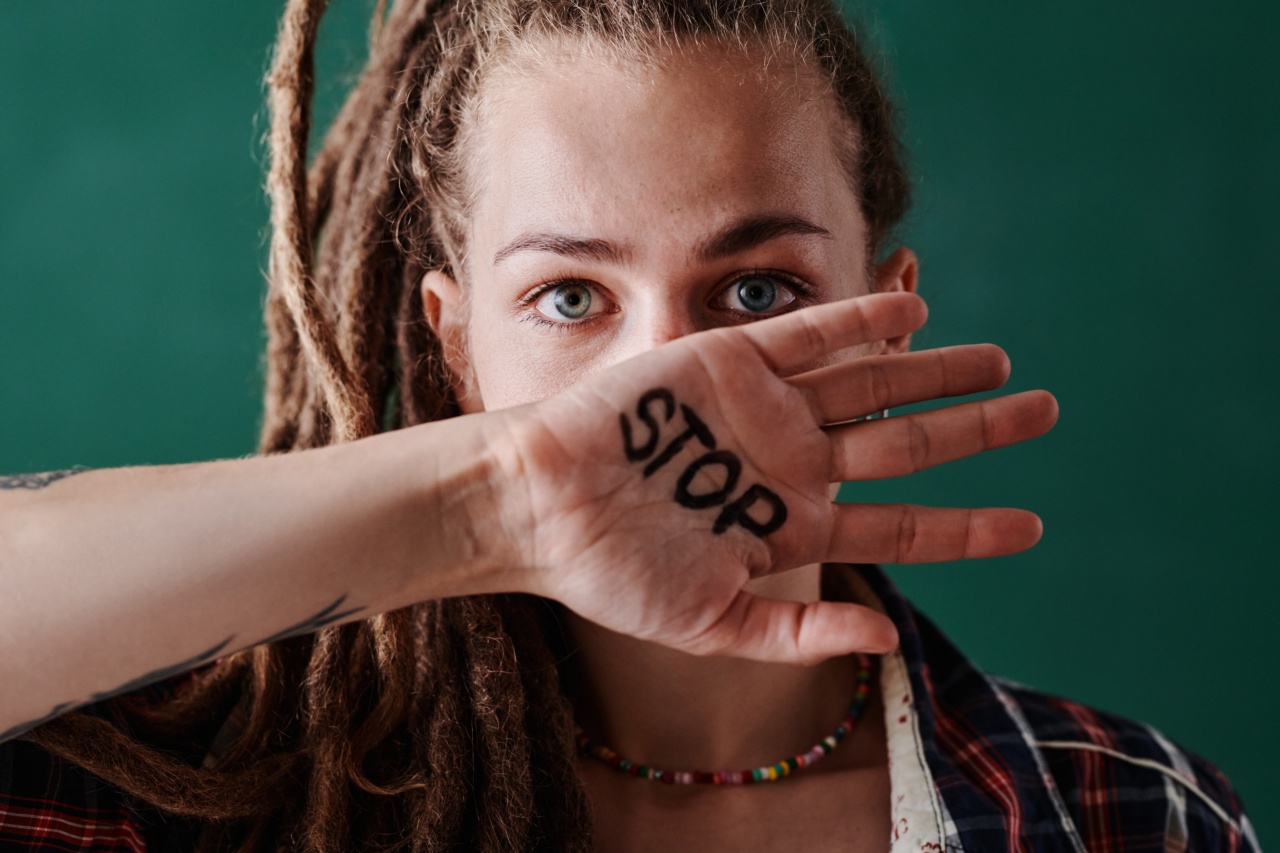Having long and luscious hair is often considered a sign of beauty and youth. Unfortunately, many individuals experience a significant slowdown in hair growth at some point in their lives, leaving them wondering why their hair has stopped growing.
There can be various factors contributing to this issue, ranging from internal to external influences. In this article, we will examine some of the common causes of stunted hair growth and offer potential solutions to encourage healthy hair growth.
1. Genetics and Hair Growth
Genetics play a vital role in determining the length and growth rate of your hair. Each hair follicle on your scalp goes through a growth cycle that consists of a growing phase, a resting phase, and a shedding phase.
The duration of each phase is largely determined by your genes. Some individuals are genetically predisposed to have a shorter active growth phase, leading to slower hair growth overall.
If your parents or close relatives have experienced slow hair growth, it is possible that you have inherited these genes, contributing to your hair’s current growth rate.
Unfortunately, genetic factors are difficult to alter, but various external factors can still influence hair growth.
2. Age and Hormonal Changes
As we age, our bodies go through various hormonal changes that can affect hair growth. In both men and women, the production of certain hormones may decrease, leading to hair follicles becoming less active.
This can result in slower hair growth and even hair thinning or baldness in some cases.
During menopause, women often experience hormonal fluctuations, including a decrease in estrogen levels. Estrogen plays a significant role in promoting hair growth, so a decline in its production can contribute to decreased hair growth rates.
Similarly, men may experience a decrease in testosterone levels as they age, which can also affect the growth of hair follicles.
While hormonal changes are a natural part of the aging process, certain lifestyle choices and habits can exacerbate these effects.
3. Nutritional Deficiencies
Proper nutrition is crucial for overall health, including the health of your hair. A deficiency in essential nutrients can directly impact hair growth and lead to stunted or slow growth.
Some key nutrients that play a significant role in hair health include:.
a) Biotin: Also known as vitamin B7, biotin is essential for the production of keratin, the protein that makes up the hair strands. A lack of biotin can lead to brittle hair and slower growth.
b) Iron: Iron deficiency, or anemia, is a common cause of hair loss and slow hair growth. Iron is necessary for the proper oxygenation of hair follicles, and its deficiency can disrupt the hair growth cycle.
c) Vitamin D: Vitamin D is important for hair follicle stimulation and the activation of hair growth. Insufficient vitamin D levels can inhibit hair growth and even lead to hair loss.
Ensuring a well-balanced diet that includes these and other essential nutrients can go a long way in promoting healthy hair growth.
4. Stress and Hair Growth
Chronic stress and anxiety can have a detrimental impact on various aspects of our health, including our hair. Constant stress can disrupt the normal hair growth cycle and push hair follicles into a prolonged resting phase, known as telogen effluvium.
During this phase, the hair stops growing for a certain period, leading to noticeable hair thinning and shedding. Reducing stress levels through relaxation techniques, regular exercise, and self-care can help maintain healthy hair growth.
5. Overstyling and Hair Damage
Excessive heat, chemicals, and mechanical stress from various hairstyling practices can cause severe damage to the hair shaft.
Regular use of heat styling tools, such as flat irons and curling wands, can lead to dryness, breakage, and ultimately stunt hair growth.
Chemical treatments like relaxers, perms, and hair dyes can also weaken the hair, making it more prone to breakage. Additionally, hairstyles that tug on the hair, such as tight ponytails or braids, can cause damage and hinder healthy hair growth.
It is essential to strike a balance between styling and hair health. Minimizing the use of heat styling tools, opting for gentler hair treatments, and avoiding tight hairstyles can help promote an environment for healthy hair growth.
6. Underlying Health Conditions
In some cases, stunted hair growth may be an indication of an underlying health condition. Certain medical conditions, such as thyroid disorders, autoimmune diseases, and scalp infections, can disrupt the hair growth cycle and slow down hair growth.
If you have noticed a sudden and significant decrease in hair growth rate, it is recommended to consult a medical professional to rule out any underlying health issues that may be causing this change.
7. Lack of Proper Hair Care
Your hair requires proper care and attention to flourish. Failure to follow a regular hair care routine and using harsh products can lead to damage and impede hair growth.
Avoiding excessive washing, using a gentle shampoo and conditioner, and moisturizing the hair regularly can help create a suitable environment for healthy hair growth.
Additionally, regularly trimming split ends can prevent them from traveling up the hair shaft, causing further damage and breakage.
8. Medications and Hair Growth
Some medications, such as certain antidepressants, blood thinners, or medications used for chemotherapy, may have a side effect of stunting hair growth.
These medications can disrupt the natural hair growth cycle and cause hair loss or slow hair growth as a result.
If you suspect that your medication may be affecting your hair growth, consult with your healthcare provider to explore alternative options or potential solutions.
9. Environmental Factors
External environmental factors can also contribute to slow hair growth. For instance, exposure to excessive pollution, harsh weather conditions, or harmful UV rays can damage the hair and impede its growth.
Protecting your hair from such factors using hats, scarves, or protective hair products can help maintain a healthy growth rate.
10. Poor Scalp Health
The condition of your scalp plays a vital role in determining the health and growth of your hair. If your scalp is dry, flaky, or experiencing conditions like dandruff or scalp psoriasis, it can affect hair growth negatively.
These scalp issues can clog hair follicles, disrupt the growth cycle, and hinder healthy hair growth.
Maintaining good scalp hygiene, using gentle and scalp-friendly hair products, and addressing any specific scalp concerns can contribute to optimal conditions for hair growth.
Promoting Healthy Hair Growth
While the rate of hair growth can vary from person to person, there are various steps you can take to support healthy hair growth. Consider the following:.
1. Maintain a balanced and nutritious diet, focusing on foods rich in the essential nutrients for hair health.
2. Minimize stress levels through relaxation techniques, exercise, and self-care.
3. Avoid excessive heat styling and harsh chemical treatments, allowing your hair to recover and grow naturally.
4. Protect your hair from environmental factors, such as pollution and harmful UV rays.
5. Adopt a regular hair care routine, including gentle washing, moisturizing, and regular trimming.
6. Address any underlying health conditions, consulting with a medical professional if necessary.
By implementing these practices, you can create a favorable environment for healthy hair growth and potentially improve the overall rate of growth.






























